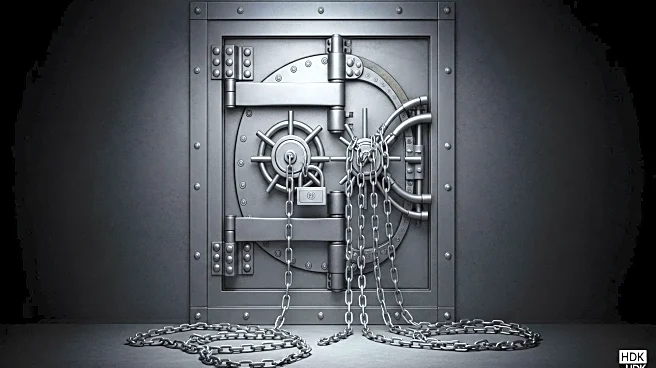What's Happening?
The United States has entered a government shutdown following unsuccessful negotiations between President Trump and Congress to secure a funding agreement. This marks the third shutdown under President Trump's administration. The shutdown affects a wide range of government services and employees, with significant disruptions expected across the country. According to Doreen Greenwald, President of the National Treasury Employees Union, the shutdown will have widespread impacts beyond Washington D.C., affecting working families nationwide. Federal agency managers reportedly failed to communicate contingency plans effectively, leaving many federal workers uncertain about their work status. The shutdown's economic effects are anticipated to be significant, with potential delays in the release of the monthly jobs report and broader economic disruptions.
Why It's Important?
The government shutdown has far-reaching implications for U.S. society and the economy. It disrupts essential services and places financial strain on federal employees who may face furloughs or work without pay. The shutdown also affects public services, such as low-income food programs and air travel, potentially causing delays and hardships for citizens. The political standoff highlights deep divisions between Republicans and Democrats, particularly over issues like healthcare subsidies under the Affordable Care Act. The shutdown could lead to increased insurance premiums and affect millions of Americans. The situation underscores the challenges of governance in a polarized political environment and the potential for significant economic and social consequences.
What's Next?
As the shutdown continues, pressure will mount on both political parties to reach a resolution. Vice President JD Vance has indicated that Republicans are willing to negotiate with Democrats, but only after the government resumes operations. The shutdown's duration will determine the extent of its impact, with prolonged closures potentially leading to more severe economic and social disruptions. Federal employees are expected to receive retroactive pay once the shutdown ends, but the immediate financial strain could be significant. The political fallout from the shutdown may influence future negotiations and policy decisions, as both parties seek to address the underlying issues that led to the impasse.
Beyond the Headlines
The shutdown raises questions about the long-term sustainability of current government operations and the potential for structural changes. President Trump's administration has expressed a desire to reduce the size of the federal government, and the shutdown could be used as leverage to push for such reforms. The situation also highlights the vulnerability of federal employees and the importance of contingency planning in government operations. The shutdown may prompt discussions about the need for more robust mechanisms to prevent future funding lapses and ensure continuity of essential services.










